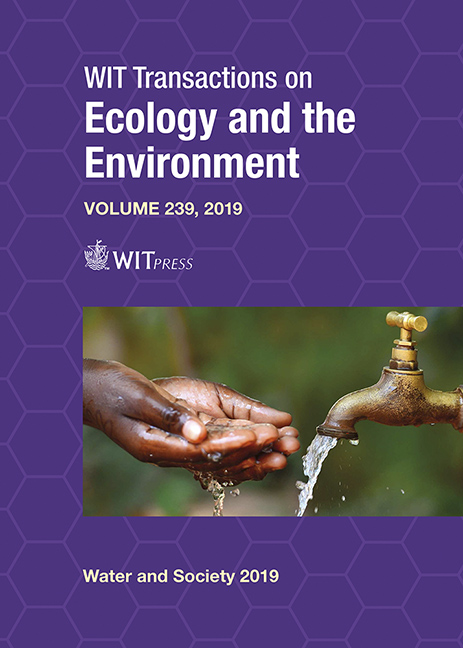FACTORS CONTRIBUTING TOWARDS HIGH WATER USAGE WITHIN POOR COMMUNITIES IN KWAZULU-NATAL, SOUTH AFRICA
Price
Free (open access)
Transaction
Volume
239
Pages
10
Page Range
1 - 10
Published
2019
Paper DOI
10.2495/WS190011
Copyright
WIT Press
Author(s)
ROOKMONEY THAKUR, GEOFFREY HARRIS, SURENDRA THAKUR, STANLEY ONWUBU
Abstract
Government bodies tasked with water resource management in recent years have by default placed more emphasis on increasing the water supply rather than reducing water demand. South Africa, however, is a semi-arid country plagued by unpredictable rainfall and severe drought conditions. The water authority bodies, usually operated by the municipalities, face high water losses due to aged infrastructure. This is exacerbated by a high daily water consumption amongst indigent residents, which is about 286 L per person compared to the international norm of 173 L per person. These two factors combine and contribute towards significant economic losses. The aim of this paper is to examine factors contributing towards high water consumption in poorer communities in Kwa-Zulu Natal, South Africa. The location of the study was a low-cost housing zone comprising a population of 20,000 people. A qualitative approach in a form of semi-structured interviews with main stakeholders from government, community-based organisations and academics was used to gather data. Three themes emerged from the study: (1) the viability of the current water management system; (2) reducing water consumption; and (3) how to change consumer behaviour towards water conservation. Results showed that the current water management system for the area was feasible and affordable. In addition, reducing water usage was possible through community involvement and communication. It was further noted that consumer behaviour can change through education concerning pricing and incentives.
Keywords
water sustainability, water management, water behaviour, indigent communities, education, community engagement, South Africa.





